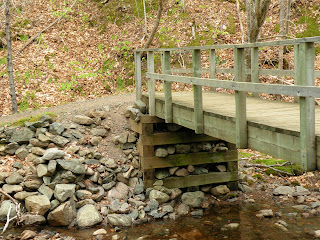The Freshwater Summit was held last week on June 1 and 2. The outcome will be a communiqué policy statement that will presented to all levels of government as well as the Canadian contigent for the G8. There was also a Youth Summit that ran in conjunction where high school students from Muskoka and Orillia drafted their own communiqué.
The main messages from the Summit: "Water is our most valuable resource" and "All citizens must recognize their individual responsibilities in relation to water".
 The speakers were Maude Barlow, national chairperson of the Council of Canadians; Henry lickers, director of the Department of the Environment for the Mohawk Council of Akwesasne; Gord Miller, Ontario Environmental Commissioner; Dr. David Schindler, professor of ecology at the University of Alberta; Dr. John Smol, Canada research chair in environmental change; and Dr. Norm Yan, professor of ecology at York University.
The speakers were Maude Barlow, national chairperson of the Council of Canadians; Henry lickers, director of the Department of the Environment for the Mohawk Council of Akwesasne; Gord Miller, Ontario Environmental Commissioner; Dr. David Schindler, professor of ecology at the University of Alberta; Dr. John Smol, Canada research chair in environmental change; and Dr. Norm Yan, professor of ecology at York University.
For more information on the speakers, their talks, and the summit go to www.2010freshwatersummit.org
Water is vital to our existance. This means we must all be education about water issues on local and global levels. It also means we must all take actions in water justice issues. It is a big responsibility! There is so much to think about: cleanliness, conservation, scarcity, water as a commons, and water as a human right are just the begining of a long list of water-realted issues.
A great place to start for Muskokans is the Muskoka Water Web at www.muskokawaterweb.ca. It is a phenomenal resource to link to to start getting educated about some of these issues. There, you will also find a link to the 2010 Watershed Report Card that was released in May 2010. It assesses the health of the Muskoka watershed and links to sub-watershed reports.
On a global level, check out www.blueplantproject.net. A fantastic resource for global water issues and what you can do to help. If you will be in Toronto on June 25th, be sure to check out www.canadians.org/g20/event.html to hear more amazing speakers and network about global justice issues.
If you missed the Freshwater Summit or want to re-visit it then stay tuned to TV COGECO during the week of the G8 (June 21-26) for a re-broadcast of the talks. Paul Kennedy from CBC Radio 1 show Ideas will also be compressing the talks into a 2-hour segment on June 24th and 25th.
So much to think about and do! What are you doing??




















